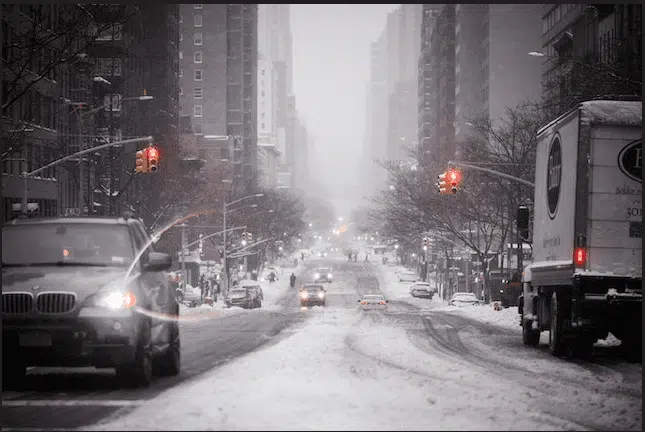Winter Weather Home Safety for Older Adults
Posted in Winter Safety Tips, Winter Weather and the Elderly
As the fall season sets in and temperatures begin to dip, now is the perfect time to start preparing for the challenges presented by winter weather.
Winter Safety and Older Adults
Cold weather presents significantly more danger to older adults due to natural changes in the body caused by the aging process. Older adults typically have less body fat than their younger counterparts, allowing for faster loss of body heat during cold weather. Additionally, some prescription medications can impact a body’s ability to regulate heat, which can be exacerbated by chronic conditions like diabetes and thyroid disease.
These factors make older adults particularly vulnerable to hypothermia, a condition in which your body cannot produce heat fast enough to replace body temperature lost to the environment. 
Preparing your home for winter
Winter weather safety begins at home. Making the following preparations before temperatures dip dangerously low ensures you will have plenty of time to address any issues you discover.
Your home heating system is your best protection against extreme cold and should be the first thing you consider when preparing for winter weather.
- Check your home heating system and ensure it is functioning properly. If you live in an apartment-style building, schedule a time for your superintendent to check your apartment’s system.
- Set your thermostat to 68 to 70 degrees Fahrenheit and leave it there. Lowering the temperature may save a few dollars on energy bills, but the risk of failing to notice a sudden cold snap far outweighs the savings of running your heating system dangerously low.
Drafts allow cold air to enter your home and drain heat quickly. By minimizing drafts you can keep cozy without breaking the bank on energy bills.
- Check your windows for drafts. If you find a drafty window, consider using weather stripping or sashes to limit the loss of heat. Heavy curtains can also help prevent heat loss by creating a pocket of air between a window and the rest of a room.
- If certain rooms of your home are particularly drafty, consider sealing them off by keeping connecting doors closed and installing door draft blockers.
- If using door draft blockers find models that connect to the door, as unsecured draft blockers can be pushed into your pathway and preset a fall hazard.
- Avoid relying on space heaters to keep rooms warm. These devices present significant fire risks, especially if knocked over, placed too closely to flammable material, or left on for too long.
Preparing your most commonly used rooms for cold weather can make the winter season significantly safer and more comfortable.
- Consider moving your most commonly used chairs or couches away from windows and other sources of drafts.
- Leave a blanket within arms-reach of your favorite seats so you can tuck in while relaxing.
- Double check that furniture is a safe distance from heat sources and that all heating and ventilation ducts are unobstructed by furniture.
Winter snow storms can happen suddenly and leave you on your own for an extended period of time. Consider the supplies in your home and make sure you are well-stocked.
- Check both your prescription and over-the-counter medication to see if they have expired, or if you are running low. Make sure to maintain at least a two-week supply of medication in the event a winter storm makes visiting your pharmacy difficult.
- If you are responsible for clearing snow from your property, purchase de-icing material before the first snowfall and make sure your tools are in good repair.
- Pulling out your winter wardrobe from storage can take some time, but doing so early can be a big time saver later in the season.
- Make sure your pantry is prepared with non-perishable foods, as well as a few treats to help ride out a long snow storm.
The winter season can be a difficult time, especially when living alone, but taking small steps to prepare yourself and your home early can make all the difference when winter weather comes to stay.
If you or a loved one are concerned about preparing your home or remaining safe during winter weather, now is a great time to consider home health care services. Home health caregivers can provide supervision and support on your terms, allowing you to continue living safely at home with the assurance that a helping hand is always available.
To learn more about how home health care can help you or a loved one remain comfortable in their long-time home, consider calling SelectCare today or requesting a free in-home care guide.
